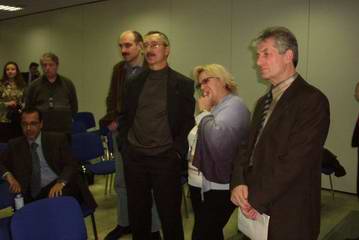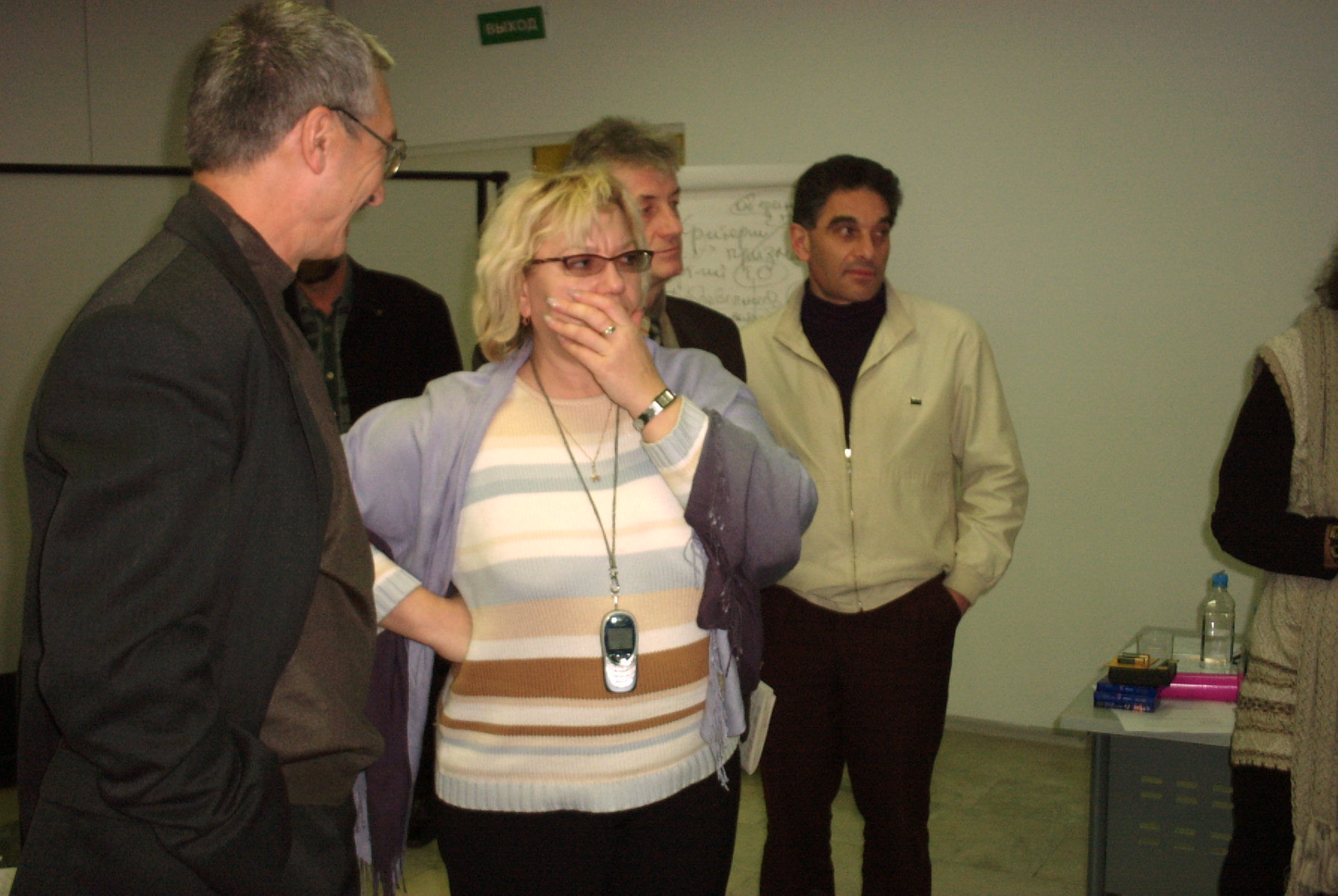
“Civic Engagement Policies of the World Bank and the European Bank for Reconstruction and Development in the Russian Federation”
Work and Advocacy Plan

The World Bank and European Bank for Reconstruction and Development are international institutions that play an important role in global economic governance. They recognize the indispensability of civic engagement for successful implementation of structural reforms carried out with their financial and consultative support [1]. My research concerns ways in which that recognition can be optimized in practice.
In the case of
Research
The study of the civic engagement policies of the World Bank and European Bank for Reconstruction and Development, along with those of the Russian federal Government, is of great importance for the successful implementation of future reforms to be carried out with the financial and consultative support of these powerful international financial organizations. This is especially true given that reforms and projects of the last 10 years in Russia and now in their second decade, with the World Bank and EBRD support have had a considerable and complex influence on the economic and social situation in Russia. Recongnition of local communities and social groups as stakeholders (i.e. the importance of taking into consideration their opinions and encouraging public participation) is a key component of the development and implementation of any reform or large-scale project. Only by guarateeing the rights of public participation and access to information will citizens be able to meaningfully play a meaningful role in project development, to freely express their opinion and therefore to understand the essence of reforms, which will translate into support and, ultimately, the success of reform process in Russia.
Fellowship Aims and
Objectives, May 2005 - April 2006
The project is aimed to contribute towards a more successful mplementation of civic engagement policies of the WB and EBRD from the point of view of democratic participatory approaches of their development, openness and accountability of state and inter-state institutions, active citizenship, public participation and inclusion of various (including marginalized) segments of the population in planning, decision-making, and monitoring implementation by the Government.advance and make more effective formal and informal elements of the civic engagement policies of the WB and EBRD in Russia.
The project's objectives are to scrutinize the Russian government’s policy documents and practice related to civic engagement, compare the civic engagement policies of the World Bank (WB) and European Bank for Reconstruction and Development (EBRD), and refine the criteria for the successful implementation of WB and EBRD civic engagement policies with a view toward broader inclusion of civil society organizations and their beneficiaries in decision-making processes.
To present project findings and recommendations to the key target groups.
To write a 20-page research paper with conclusions on the best practices and refine recommendations regarding successful strategies for the development and implementation of civic engagement policies of the WB and EBRD, together with the Government of the Russian Federation.
To carry out a more comprehensive research for the candidate of sciences thesis at MGIMO.
Research Problems
- Principles of development and implementation of civic engagement policies of the WB and EBRD in Russia and criteria of their effectiveness;
- Influence of public participation on the WB and EBRD projects and programs in Russia and their successful implementation
- Link between the civic engagement policies of the WB and EBRD and that of Russian federal Government and Russia’s regions .
Organizations that may serve as partners
The following Russian organizations will be partners, as well as end users of the project outcomes:
- Russian federal Ministry for Economic Development and Trade and Ministry of Finance
- Russian regional executive authorities: those who were interviewed and some of those that are partners of Center "Strategy" in over 50 Russia's regions
- Council on Civil Society Development and Human Rights by the President of the Russian Federation
- Moscow State Institute (University) of International Relations
- Russian civil society
organizations, mainly those working in the sphere of advocacy and
public participation
The following OSI network programs and organizations, working in the field of governance in Russia, the Ukraine, and Belarus could serve as partners:
- Institute of Social and
Gender Policy (ISGP), a former Network Women’s Program of
OSI-Russia (Moscow)
- Local Government and Public Service Reform Initiative (Budapest, Hungary)
- Central European University, Department of Political Science (Budapest, Hungary)
- Policy Centers for Open
Society (PASOS) Network
Expected Benefits for the Potential Partners
- A menu of formal an dinformal elements of civic engagement practices that work best for Russia;
- Criteria of successful civic engagement policies in Russia;
- Analysis of civic engagement policies and practice of the WB and EBRD and their interlink with that of the Russian Federal Government;
- Analysis of various stakeholders (public officials, CSOs, municipal deputies, etc.) opinions on effectice civic engagement practices in Russia;
- Analysis of best cases of impact of civil society on governmental bodies;
- Recommendations for Russian authorties and international institutions on successful strategies for the development and implementation of civic engagement policies
Project Deliverables
- An Issue Brief
- A Research paper;
- A 20-page policy paper destined for the project target groups - decision-makers at the WB, EBRD and Russian Federal Ministries;
- A special publication, containing recommendations on how best to achieve for civic engagement in the process of policy reforms and social and economic development programs;
- Presentation of the research outcome to the target group.